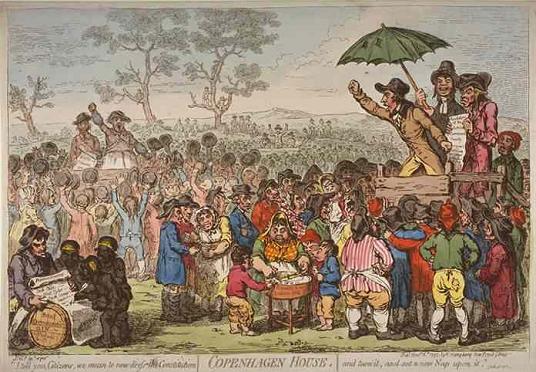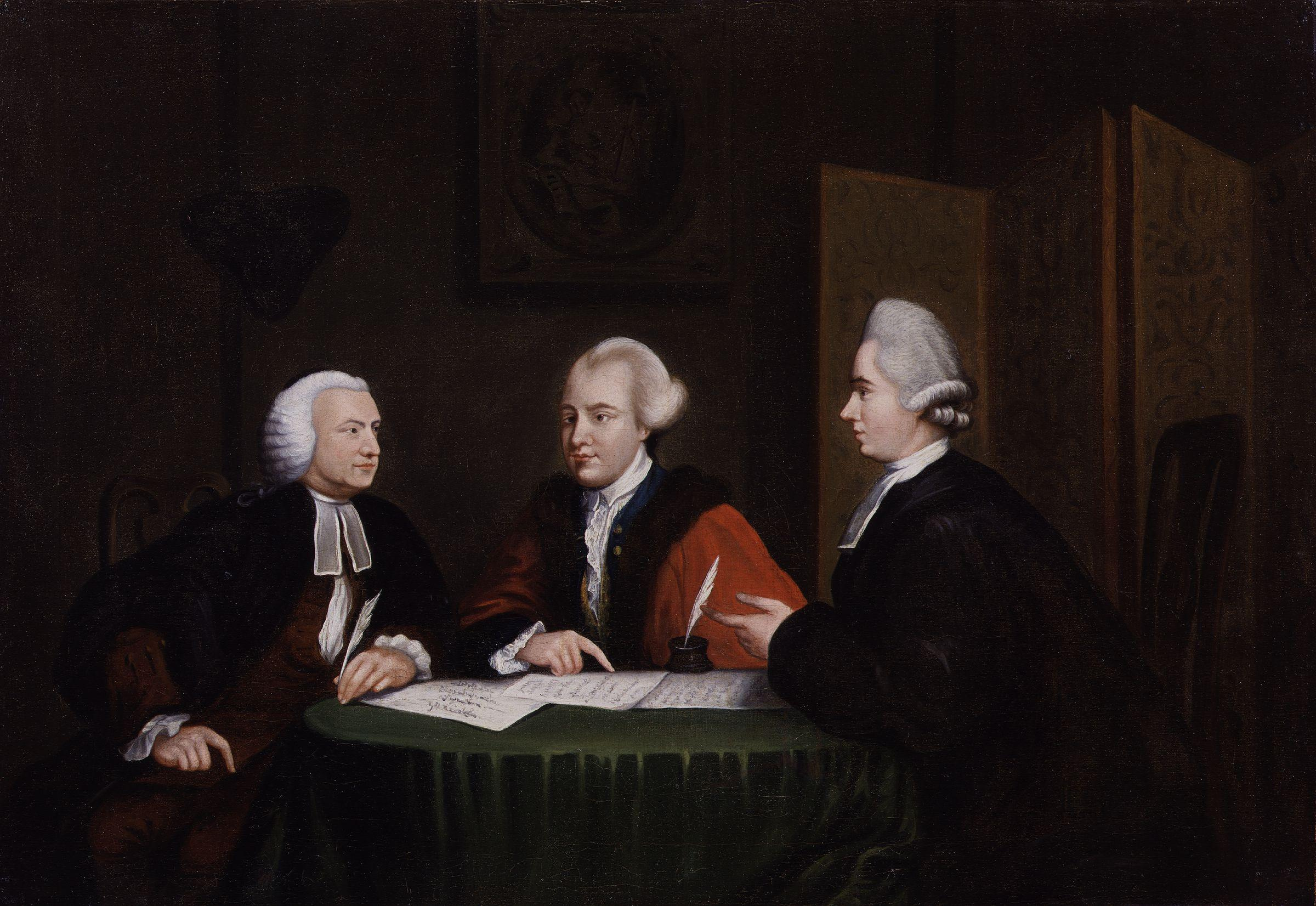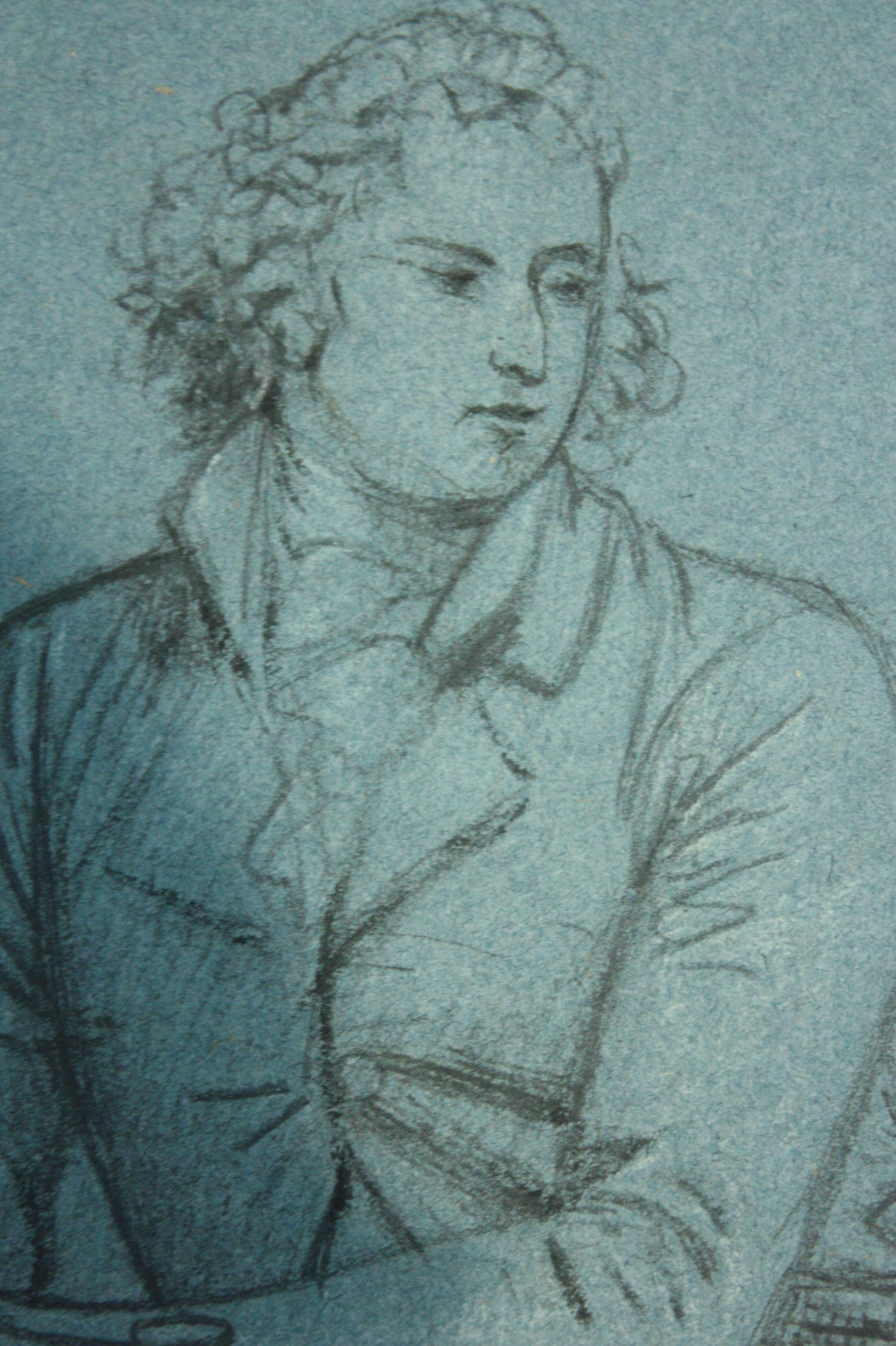|
John Gifford (writer)
John Gifford (1758 – 6 March 1818) was an English political writer. He was born John Richards Green until changing his name at the age of 23. Gifford wrote a ''History of England'' (two volumes, 1790), ''History of France'' (four volumes, 1791-3), and ''The Reign of Louis XVI: a Complete History of the French Revolution'' (1794). A staunch supporter of William Pitt the Younger's government, Gifford wrote loyalist pamphlets such as ''A Plain Address to the Common Sense of the People of England'' with an annex titled ‘An abstract of Thomas Paine's life and writings’ (1792). His 1798 ''Short Address to Members of Loyal Associations'' was said to have sold 100,000 copies. Gifford also translated a few French émigré royalist pamphlets. He founded the '' Anti-Jacobin Review'' in 1798 after the demise of '' The Anti-Jacobin''. It published until 1821. His ''Short Address'' included a scenario of Jacobin Britain: Thomas Paine, John Horne Tooke, John Thelwall, Thomas Hardy and ... [...More Info...] [...Related Items...] OR: [Wikipedia] [Google] [Baidu] |
William Pitt The Younger
William Pitt the Younger (28 May 175923 January 1806) was a British statesman, the youngest and last prime minister of Great Britain (before the Acts of Union 1800) and then first prime minister of the United Kingdom (of Great Britain and Ireland) as of January 1801. He left office in March 1801, but served as prime minister again from 1804 until his death in 1806. He was also Chancellor of the Exchequer for all of his time as prime minister. He is known as "Pitt the Younger" to distinguish him from his father, William Pitt, 1st Earl of Chatham, who had previously served as prime minister and is referred to as "William Pitt the Elder" (or "Chatham" by historians). Pitt's prime ministerial tenure, which came during the reign of King George III, was dominated by major political events in Europe, including the French Revolution and the Napoleonic Wars. Pitt, although often referred to as a Tory, or "new Tory", called himself an "independent Whig" and was generally opposed to the ... [...More Info...] [...Related Items...] OR: [Wikipedia] [Google] [Baidu] |
Anti-Jacobin Review
''The Anti-Jacobin Review and Magazine, or, Monthly Political and Literary Censor'', was a conservative British political periodical active from 1798 to 1821. Founded founded by John Gifford (pseud. of John Richards Green) after the demise of William Gifford's '' The Anti-Jacobin, or, Weekly Examiner'', the journal contained essays, reviews, and satirical engravings. It has been described as "often scurrilous" and "ultra-Tory" and was a vocal element of the British Anti-Jacobin backlash against the ideals of the French Revolution. History The first edition was published on 1 August 1798 and was advertised in ''The Times'' as "containing Original Criticism; a Review of the Reviewers; Miscellaneous Matter in Prose and Verse, Lists of Marriages, Births, Deaths and Promotions; and a Summary of Foreign and Domestic Politics." Gifford served as its editor until 1806. The periodical was covertly funded by the British government. Contributors included Robert Bisset (1758/9–1805), J ... [...More Info...] [...Related Items...] OR: [Wikipedia] [Google] [Baidu] |
Anti-Jacobin
The ''Anti-Jacobin, or, Weekly Examiner'' was an English newspaper founded by George Canning in 1797 and devoted to opposing the radicalism of the French Revolution. It lasted only a year, but was considered highly influential, and is not to be confused with the ''Anti-Jacobin Review'', a publication which sprang up on its demise. The Revolution polarized British political opinion in the 1790s, with conservatives outraged at the killing of the king Louis XVI of France, the expulsion of the nobles, and the Reign of Terror. Kingdom of Great Britain, Great Britain went to war against Revolutionary France. Conservatives castigated every radical opinion in Great Britain as "Jacobin" (in reference to the Jacobin, leaders of the Terror), warning that radicalism threatened an upheaval of British society. The Anti-Jacobin sentiment was expressed in print. William Gifford was its editor. Its first issue was published on 20 November 1797 and during the parliamentary session of 1797–98 it ... [...More Info...] [...Related Items...] OR: [Wikipedia] [Google] [Baidu] |
Thomas Paine
Thomas Paine (born Thomas Pain; – In the contemporary record as noted by Conway, Paine's birth date is given as January 29, 1736–37. Common practice was to use a dash or a slash to separate the old-style year from the new-style year. In the old calendar, the new year began on March 25, not January 1. Paine's birth date, therefore, would have been before New Year, 1737. In the new style, his birth date advances by eleven days and his year increases by one to February 9, 1737. The O.S. link gives more detail if needed. – June 8, 1809) was an English-born American political activist, philosopher, political theorist, and revolutionary. He authored ''Common Sense'' (1776) and ''The American Crisis'' (1776–1783), two of the most influential pamphlets at the start of the American Revolution, and helped inspire the Patriots in 1776 to declare independence from Great Britain, hitherto an unpopular cause. His ideas reflected Enlightenment-era ideals of transnational human rig ... [...More Info...] [...Related Items...] OR: [Wikipedia] [Google] [Baidu] |
John Horne Tooke
John Horne Tooke (25 June 1736 – 18 March 1812), known as John Horne until 1782 when he added the surname of his friend William Tooke to his own, was an England, English clergyman, politician, and Philology, philologist. Associated with radical proponents of parliamentary reform, he stood trial for treason in November 1794. Early life and work He was the third son of John Horne, of Newport Street, Long Acre, Westminster, a member of the Worshipful Company of Poulters. As a youth at Eton College, he had claimed "that his father was an eminent Turkey Merchant, Turkey merchant" implying that, rather than a dealer in poultry, he traded with the Eastern Mediterranean. Before Eton, he had been at school in Soho Square, in a Kentish village, and from 1744 to 1746 at Westminster School. He was blinded in his right eye during a schoolboy fight. [...More Info...] [...Related Items...] OR: [Wikipedia] [Google] [Baidu] |
John Thelwall
John Thelwall (27 July 1764 – 17 February 1834) was a radical British orator, writer, political reformer, journalist, poet, elocutionist and speech therapist.Thelwall, John (1764-1834) english-heritage.org.uk. Retrieved 30 May 2019. Life  Thelwall was born in , London, but was descended from a Welsh family which had its seat at Plas y Ward,
Thelwall was born in , London, but was descended from a Welsh family which had its seat at Plas y Ward,
|
Thomas Hardy (political Reformer)
Thomas Hardy (3 March 1752 – 11 October 1832) was a British shoemaker who was an early Radical, and the founder, first Secretary, and Treasurer of the London Corresponding Society. Early life Thomas Hardy was born on 3 March 1752 in Larbert, Stirlingshire, Scotland, the son of a merchant seaman. His father died in 1760 at sea while Thomas was still a boy. He was sent to school by his maternal grandfather and later apprenticed to a shoemaker in Stirlingshire. He later worked in the Carron Iron Works. As a young man, arrived in London just before the American Revolutionary War. On 21 May 1781 he was married at St-Martin-in-the-Fields church to Lydia Priest, the youngest daughter of a carpenter and builder from Chesham, Buckinghamshire. The couple had six children, all of whom died in infancy. Lydia died in childbirth on 27 August 1794, her child (the sixth) being stillborn: the cause may have been the injuries she had sustained when a loyalist "Church and King" mob attacke ... [...More Info...] [...Related Items...] OR: [Wikipedia] [Google] [Baidu] |
Thomas Muir (political Reformer)
Thomas Muir (24 August 1765 – 26 January 1799), also known as Thomas Muir the Younger of Huntershill, was a Scottish political reformer and lawyer. Muir graduated from Edinburgh University and was admitted to the Faculty of Advocates in 1787, aged 22. Muir was a leader of the Society of the Friends of the People. He was the most important of the group of two Scotsmen and three Englishmen on the Political Martyrs' Monument, Edinburgh (the others being Thomas Fyshe Palmer, William Skirving, Maurice Margarot and Joseph Gerrald). In 1793 they were sentenced to transportation to Botany Bay Australia for sedition. Two years later in 1796, Muir dramatically escaped from Botany Bay on the American ship the ''Otter'' for America. After a voyage across the uncharted Pacific Ocean the ''Otter'' reached Nootka Sound, Vancouver Island June 1796. The diaries of the first mate Pierre François Péron describe Muir's escape and voyage across the Pacific as far as Monterey, California. Fr ... [...More Info...] [...Related Items...] OR: [Wikipedia] [Google] [Baidu] |
French Directory
The Directory (also called Directorate, ) was the governing five-member committee in the French First Republic from 2 November 1795 until 9 November 1799, when it was overthrown by Napoleon, Napoleon Bonaparte in the Coup of 18 Brumaire and replaced by the French Consulate, Consulate. ''Directoire'' is the name of the final four years of the French Revolution. Mainstream historiography also uses the term in reference to the period from the dissolution of the National Convention on 26 October 1795 (4 Brumaire) to Napoleon's coup d’état. The Directory was continually at war with foreign coalitions, including Kingdom of Great Britain, Britain, Habsburg monarchy, Austria, Kingdom of Prussia, Prussia, the Kingdom of Naples, Russian Empire, Russia and the Ottoman Empire. It annexed Austrian Netherlands, Belgium and the left bank of the Rhine, while Bonaparte conquered a large part of Italy. The Directory established 196 short-lived sister republics in Italy, Old Swiss Confederacy ... [...More Info...] [...Related Items...] OR: [Wikipedia] [Google] [Baidu] |
Royal Navy
The Royal Navy (RN) is the United Kingdom's naval warfare force. Although warships were used by English and Scottish kings from the early medieval period, the first major maritime engagements were fought in the Hundred Years' War against France. The modern Royal Navy traces its origins to the early 16th century; the oldest of the UK's armed services, it is consequently known as the Senior Service. From the middle decades of the 17th century, and through the 18th century, the Royal Navy vied with the Dutch Navy and later with the French Navy for maritime supremacy. From the mid 18th century, it was the world's most powerful navy until the Second World War. The Royal Navy played a key part in establishing and defending the British Empire, and four Imperial fortress colonies and a string of imperial bases and coaling stations secured the Royal Navy's ability to assert naval superiority globally. Owing to this historical prominence, it is common, even among non-Britons, to ref ... [...More Info...] [...Related Items...] OR: [Wikipedia] [Google] [Baidu] |
Bromley
Bromley is a large town in Greater London, England, within the London Borough of Bromley. It is south-east of Charing Cross, and had an estimated population of 87,889 as of 2011. Originally part of Kent, Bromley became a market town, chartered in 1158. Its location on a coaching route and the opening of a railway station in 1858 were key to its development and the shift from an agrarian village to an urban town. As part of the suburban growth of London in the 20th century, Bromley significantly increased in population and was Municipal Borough of Bromley, incorporated as a municipal borough in 1903 and became part of the London Borough of Bromley in 1965. Bromley today forms a major retail and commercial centre. It is identified in the London Plan as one of the 13 metropolitan centres of Greater London. History Bromley is first recorded in an Anglo-Saxon charter of 862 as ''Bromleag'' and means 'woodland clearing where Cytisus scoparius, broom grows'. It shares this Old ... [...More Info...] [...Related Items...] OR: [Wikipedia] [Google] [Baidu] |
1758 Births
Events January–March * January 1 – Swedish biologist Carl Linnaeus (Carl von Linné) publishes in Stockholm the first volume (''Animalia'') of the 10th edition of ''Systema Naturae'', the starting point of modern zoological nomenclature, introducing binomial nomenclature for animals to his established system of Linnaean taxonomy. Among the first examples of his system of identifying an organism by genus and then species, Linnaeus identifies the lamprey with the name ''Petromyzon marinus''. He introduces the term ''Homo sapiens''. (Date of January 1 assigned retrospectively.) * January 20 – At Cap-Haïtien in Haiti, former slave turned rebel François Mackandal is executed by the French colonial government by being burned at the stake. * January 22 – Russian troops under the command of William Fermor invade East Prussia and capture Königsberg with 34,000 soldiers; although the city is later abandoned by Russia after the Seven Years' War ends, the ... [...More Info...] [...Related Items...] OR: [Wikipedia] [Google] [Baidu] |





.jpg)
